Advances in Cathode Materials for Lithium Rechargeable Batteries
A special issue of Processes (ISSN 2227-9717). This special issue belongs to the section "Energy Systems".
Deadline for manuscript submissions: closed (15 August 2023) | Viewed by 665
Special Issue Editor
Special Issue Information
Dear Colleagues,
Li-ion batteries (LIBs) are a pervasive technology in today’s society. While they were introduced in the early 1990s for use in portable electronic devices, their application has migrated to transportation and grid, for which the demand for lower cost, safer, and higher performing LIB materials is ever-increasing. In particular, new cathode materials are crucial as the cathode is currently the most expensive and the heaviest component in the batteries. Moreover, conventional cathode materials contain expensive and non-abundant transition metals (TMs), particularly Co, rendering the current LIBs, which lack sustainability for large-scale applications. Therefore, there exists a critical demand to develop and understand advanced Li-ion cathodes with high performance and a low cost.
We hope that the Special Issue will provide a platform for the exchange of knowledge in Advanced Cathode Materials for Lithium Rechargeable Batteries, opening a new avenue in LIB development.
Topics include but are not limited to:
- Co-free cathode materials;
- Ni-rich-layered cathode materials;
- Li-rich-layered and disordered-rocksalt cathode materials;
- High-voltage oxide/phosphate cathodes;
- Surface modification of advanced cathodes;
- Single-crystal cathode materials;
- Recycling of Li-ion cathode materials;
- In situ characterization of cathode materials;
- Ab initio calculations of advanced cathode materials;
- Electrolytes for high-voltage cathodes.
Authors are invited and welcome to submit original research papers, reviews, and short communications.
Dr. Jinhyuk Lee
Guest Editor
Manuscript Submission Information
Manuscripts should be submitted online at www.mdpi.com by registering and logging in to this website. Once you are registered, click here to go to the submission form. Manuscripts can be submitted until the deadline. All submissions that pass pre-check are peer-reviewed. Accepted papers will be published continuously in the journal (as soon as accepted) and will be listed together on the special issue website. Research articles, review articles as well as short communications are invited. For planned papers, a title and short abstract (about 100 words) can be sent to the Editorial Office for announcement on this website.
Submitted manuscripts should not have been published previously, nor be under consideration for publication elsewhere (except conference proceedings papers). All manuscripts are thoroughly refereed through a single-blind peer-review process. A guide for authors and other relevant information for submission of manuscripts is available on the Instructions for Authors page. Processes is an international peer-reviewed open access monthly journal published by MDPI.
Please visit the Instructions for Authors page before submitting a manuscript. The Article Processing Charge (APC) for publication in this open access journal is 2400 CHF (Swiss Francs). Submitted papers should be well formatted and use good English. Authors may use MDPI's English editing service prior to publication or during author revisions.
Keywords
- Co-free cathodes
- Ni-rich-layered cathodes
- Li-rich-layered and disordered-rocksalt cathodes
- High-voltage oxide/phosphate cathodes
- Surface modification of advanced cathodes
- Single-crystal cathode materials
- Recycling of Li-ion cathodes
- In situ characterization of cathode materials
- Ab initio calculations of cathode materials
- Electrolytes for high-voltage cathodes
Benefits of Publishing in a Special Issue
- Ease of navigation: Grouping papers by topic helps scholars navigate broad scope journals more efficiently.
- Greater discoverability: Special Issues support the reach and impact of scientific research. Articles in Special Issues are more discoverable and cited more frequently.
- Expansion of research network: Special Issues facilitate connections among authors, fostering scientific collaborations.
- External promotion: Articles in Special Issues are often promoted through the journal's social media, increasing their visibility.
- e-Book format: Special Issues with more than 10 articles can be published as dedicated e-books, ensuring wide and rapid dissemination.
Further information on MDPI's Special Issue polices can be found here.





